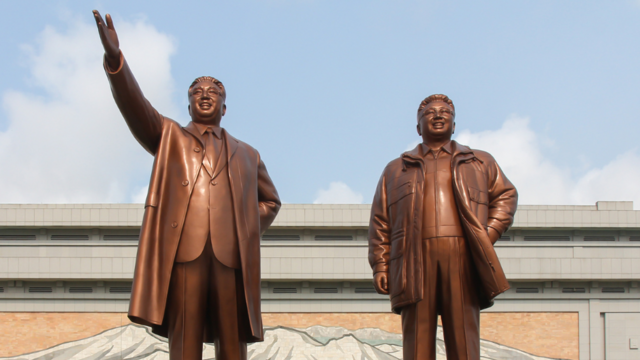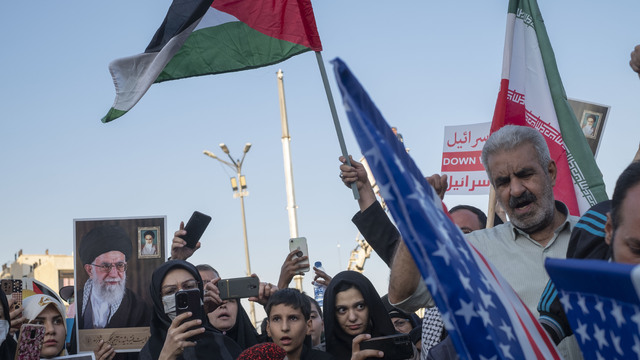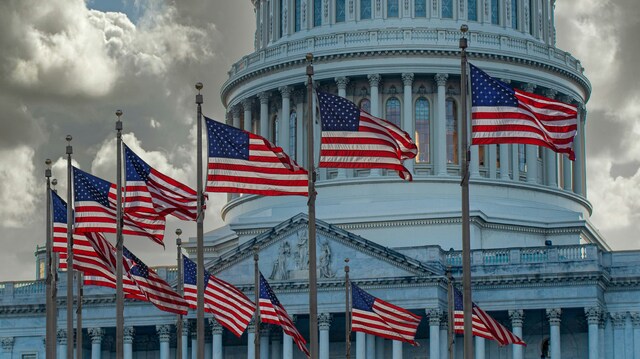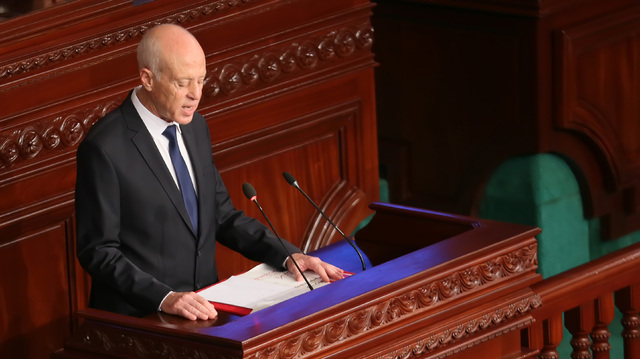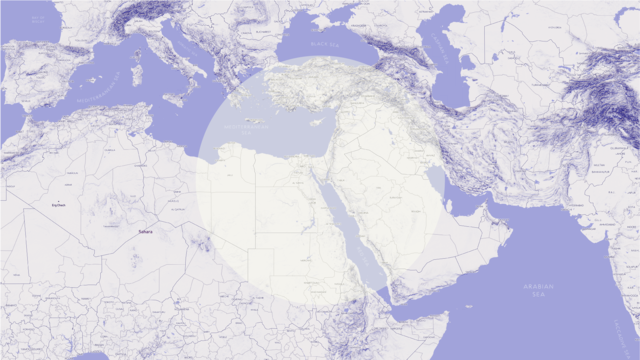Do Two Wrongs Make a Right?
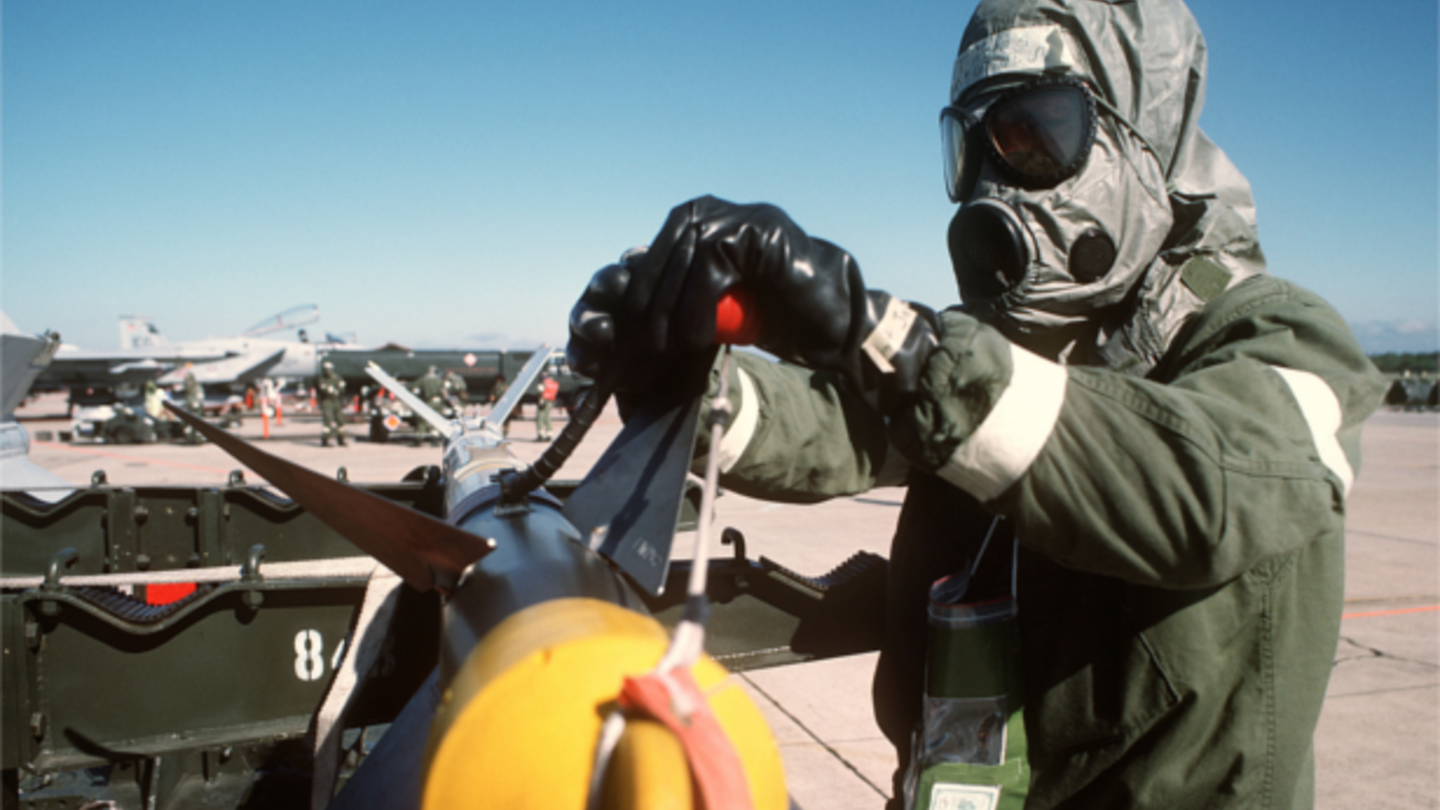
On Thursday 6 April 2017, the US carried out a missile strike in Syria. It did so in response to the chemical attack which had taken place two days earlier in the town of Khan Sheikhoun, in the rebel-controlled part of the Idlib province, killing 80 and seriously injuring more than 200 civilians. The chemical attack has been uniformly condemned. The US attack, on the contrary, has attracted not only criticism but also statements of support and of praise. This is surprising provided that the two attacks both constitute a clear violation of some of the most fundamental norms of the international legal order. And that the latter attack may potentially threaten the stability of this order, and the values it protects, not less than the former one.
The Use of Chemical Weapons in Syria
Chemical weapons, together with nuclear and biological weapons, qualify as weapons of mass destruction (WMD). These weapons can kill a large number of people at the same time, their effects are hard to contain and control and they cause unnecessary suffering and superfluous injuries. The first massive use of chemical weapons, which occurred during the World War I, caused so much harm and produced such a shock at the international scene that it prompted an absolute prohibition of these weapons.
The Protocol for the Prohibition of the Use in War of Asphyxiating, Poisonous or other Gases, and of Bacteriological Methods of Warfare, concluded in 1925 in Geneva (also the Geneva Protocol) confirmed that the prohibition of chemical weapons “shall be universally accepted as a part of International Law, binding alike the conscience and the practice of nations” (par. 3 of the Preamble). The prohibition of the use of chemical weapons was largely respected during the World War II and in the Cold War Period, with some exceptions (e.g. gas bombs used during the civil war in Yemen in the 1960s) and with some States using chemical substances not qualifying per se as chemical weapons (e.g. napalm used by the US during the wars in Korea in the 1950s and in Vietnam in the 1960s-1970s).
In 1993, a new instrument, the Convention on the Prohibition of the Development, Production, Stockpiling and Use of Chemical Weapons and on their Destruction (also the Chemical Weapons Convention – CWC) was adopted. It reaffirmed the absolute nature of the prohibition of the use of chemical weapons and extended the prohibition to the development, production, acquisition, stockpiling and transfer of these weapons. It also created a special international organization, the Organization for the Prohibition of Chemical Weapons (OPCW), to ensure the implementation of and to monitor the compliance with CWC. The Convention has 192 State parties, only four States (Egypt, Israel, North Korea and South Sudan) are not bound by it (Israel signed CRC in 1993 but has not ratified it yet).
Syria ratified the Geneva Protocol in 1968 and it became State party to CWC on 14 October 2013. Its accession to CWC was the result of an international pressure following the first instances of the alleged use of chemical weapons by the Syrian Armed Forces in the Syrian civil war (incidents in Khan Al-Assal in March and in Ghouta in August 2013). During the accession to CWC, International Law Reflection 2017/4/EN Syria declared itself in possession of 1.040 tons of the most dangerous chemicals. These chemicals were allegedly destroyed, with the supervision of the OPCW, under an accelerated schedule devised by the US and the Russian Federation and endorsed by the UN Security Council in Resolution 2118.
In April 2014, the OPCW established the Fact-Finding Mission (FFM) in Syria, to investigate the allegations of the use of toxic chemicals in Syria. In 2014-2016, the FFM published several reports in which it confirmed that chemicals had been repeatedly used during the Syrian Civil War but largely failed to identify the authors of these acts.
In August 2015, the UN Security Council initiated the establishment of the OPCW-UN Joint Investigative Mechanism (JIM, see Resolution 2235). JIM, led by a three-person Leadership Panel, was asked “to identify to the greatest extent feasible individuals, entities, groups, or governments who were perpetrators, organisers, sponsors or otherwise involved in the use of chemicals as weapons /…/ in the Syrian Arab Republic where the OPCW Fact Finding Mission (FFM) determines or has determined that a specific incident in the SAR involved or likely involved the use of chemicals as weapons” (par. 5). JIM has looked into nine incidents. It has found sufficient evidence to assign three of them to the Syria Air Forces and one to the Islamic State. In the remaining five cases, JIM has been unable to make the determination due to insufficient evidence. The mandate of JIM was to expire in November 2016 but the UN Security Council extended it for one more year (see Resolution 2319).
Both FFM and JIM are thus still in place and could, and should, be tasked to investigate the Khan Sheikhoun incident. In fact, according to the information available on the OPCW website, FFM has already started such investigations.
Any instance of the use of chemical weapons as well as any instance of the use of chemical substances against civilian population, is a violation of international humanitarian law (IHL), the branch of international law applying in armed conflicts and seeking to somehow humanize these conflicts. These instances also amount to war crimes, giving rise to individual criminal responsibility of the individuals who have carried out, planned or ordered the attack.
This, however, is in no way reserved to the use of chemical weapons. Any serious violations of IHL – the use of other prohibited means of warfare (biological weapons, weapons causing unnecessary suffering, blinding laser weapons, etc.), the use of prohibited methods of warfare (intentional targeting of civilians, intentional targeting of hospital, etc.) or non-respect of protected persons (murder or torture of prisoners of war or of detained enemy civilians) – entail the same consequences. There is no “red line” on chemical weapons in international law. The only red line which exists in IHL is that between serious violations of this law, amounting to war crimes, and other (lawful or unlawful) acts of warfare.
Serious violations of IHL, including the use of chemical weapons, entail the responsibility of the relevant party to the conflict – be it a State or a non-state (rebel) group. The responsible actor must stop the violation, provide guarantees of non-repetition, and make full reparation for the injury caused by the violation. In case the responsible actor fails to do so, it is plausible to argue that any State, regardless of its link to the conflict, may impose individual sanctions on it. The UN Security Council, acting under Chapter VII of the UN Charter, may impose collective sanctions that all States are obliged to implement. The Council may also authorize the use of force against the responsible actor. Unilateral use of force, i.e. use of force without the UN SC authorization, is not lawful, unless the State resorting to this use has been attacked by the responsible State and acts in selfdefense.
At the same time, individuals responsible for the use of chemical weapons or any other serious violation of IHL (war crimes) may be held accountable, and prosecuted, before national courts in any country. In some instances, they may face prosecution in the International Criminal Court (ICC) established in 1998.
There can be hardly any doubt that numerous serious violations of IHL, as well as violations of other important rules of international law (crimes against humanity, violations of human rights etc.), have been committed during the Syrian civil war. There can also be hardly any doubt that although all the parties to the conflict, including States intervening in support of the Syrian regime or in support of various rebel groups, have their share in these violations, the current Syrian government bears the responsibility for most of them.
Whether the violations of IHL attributable to the Syrian government include also the recent – clearly unlawful – chemical attack in Khan Sheikhoun should be determined by independent bodies, i.e. FFM and JIM. Yet, even if the outcome of this determination showed that the attack was not carried out by the Syrian Air Forces, that would not change much on the fact that after six years of the civil war, the Syrian regime has a lot of innocent blood of its own people on its hands and that this alone, regardless of the chemical weapons question, is enough to legitimize, if not call for, the imposition of the measures described above. At the same time, even if the outcome of this determination showed that the attack was carried out by the Syrian Air Forces, this could not serve as a justification, under international law, for the US strike.
The US Strike in Syria
The whole system of the current international law is based on the prohibition of the use of force. This prohibition, enshrined in Article 2(4) of the UN Charter, stipulates that “all Members shall refrain in their international relations from the /…/ use of force against the territorial integrity or political independence of any state, or in any other manner inconsistent with the Purposes of the UN”. The prohibition allows for two exceptions – the UN collective actions under Chapter VII of the UN Charter (i.e. use of force with the authorisation of the UN Security Council) and individual or collective self-defence (i.e. use of force in response to an armed attack by another States and, arguably, by some non-state actors).
The US attack on Syria does not fall under either of the two exceptions to the prohibition of the use of force. The attack has not been authorised by the UN Security Council and it cannot be qualified as an act of self-defence.
It is true that the Security Council has dealt with the Syrian civil war at numerous instances since the outbreak of this war in 2011. It is also true that the Council has repeatedly expressed its readiness to sanction non-compliance with its resolutions with measures under Chapter VII. Yet, largely due to the risk, or exercise, of the veto power by China and the Russian Federation, the Council has never even proceeded to impose economic sanctions on Syria, let alone to authorise the use of force against it.
Self-defence is only possible in response to an armed attack directed against the State engaging in self-defence. It can hardly be claimed that the chemical attack in Khan Sheikhoun was an armed attack directed against the US.
The US has not so far provided any legal justification for its strike. Yet, the statements issued by its politicians – the president Donald Trump and the Secretary of State Rex Tillerson – indicate that the US does not see the strike as an act authorised by the UN Security Council or as an act of self-defence. Rather, the rhetoric, referring to “vital national security interest of the United States to prevent and deter the spread and use of deadly chemical weapons” (Trump), “a call on all civilized nations to join us in seeking to end the slaughter and bloodshed in Syria, and also to end terrorism of all kinds and all types” (Trump), or “action /…/ taken on behalf of the international community to make clear that the use of chemical weapons continues to be a violation of international norms” (Tillerson), is reminiscent of the doctrines of preventive self-defence, humanitarian intervention or, most closely, armed counter-measures (also armed reprisals).
Preventive self-defence is the use of force against non-imminent threats that could materialise in future, typically a potential future attack involving WMDs. Humanitarian intervention is an armed intervention seeking to stop serious violations of human rights committed in another country. Armed counter-measures are measures of self-help aimed at sanctioning a previous wrongdoing by another State and at forcing the latter State to respect international law again. Although occasionally invoked by some States, especially military powers, these doctrines have been consistently rejected by a vast majority of the international community (see here). The prohibition of armed reprisals is explicitly confirmed in the Friendly Relations Declaration, annexed to the UN General Assembly Resolution 2625, which is accepted as an authoritative interpretation of the UN Charter.
The US strike against Syria does not have any ground in international law and it is therefore, as Milanović from the University of Nottingham put it, “clearly unlawful”. This view is shared by most international law scholars commenting so far on the issue (see here or here, for dissident views, see here). It is plausible to argue that the strike constitutes an act of aggression as well as an armed attack in the sense of Article 51 of the UN Charter.
US Pentagon spokesman Jeff Davis, when defending the attack, argued that “the strike was a proportional response to Assad´s heinous act”. Proportionality has also been referred to in the reactions of the US allies, including the European Union and the Czech Republic. This position shows a misunderstanding of how international law works. Proportionality test only applies, when there is a legal ground for the use of force. An act of self-defence can be proportional or disproportional. An act of aggression is simply an act of aggression – it is unlawful by its very nature and, hence, no test of proportionality applies here.
Could Two Wrongs Make a Right?
It has also been argued that the US attack, though unlawful, is nevertheless legitimate and morally right, because the current international legal system does not operate efficiently and serious violations of fundamental norms of this order remain unsanctioned. This point was made, prior to the strike, by the US ambassador to the UN Nikky Haley, who stated that “when the United Nations consistently fails in its duty to act collectively, there are times in the life of states that we are compelled to take our own action”.
This argument merits consideration. Few people would indeed be so optimistic, or naïve, to believe that the rules of international law are always respected or the instances of non-respect always entail sanctions. Equally imperfect are international institutions tasked to implement and enforce international law, including the United Nations and its Security Council (with the veto power granted to the five permanent members which can block any collective action).
There might be instances when States, faced with the inefficiency of the international legal order, decide to bypass this order and “go alone”. Their action, though unlawful, may be the best – or, rather, the least bad – option available. Some authors have suggested that this is the case of the US strike in. Syria. This strike, supposedly, could bolster the prohibition of the use of chemical weapons, sending a clear message that certain acts are impermissible even in wartime, without at the same time weakening any other norm (see here). This suggestion, however, is rather problematic.
First, the norm violated by the strike – the prohibition of the use of force – is as fundamental for the international legal order as the norm whose breach the strike sought to sanction – the prohibition of the use of chemical weapons. They both make part of the normative core of current international law known as jus cogens. Seeking to bolster one norm by violating another one, equally important, is always a questionable choice.
In the case at hand, moreover, the violation is particularly risky because of the implications that any relativization of the prohibition of the use of force can have. Such relativization opens the way to more instances of the use of force and, consequently, to more armed conflicts. More conflicts also mean more human suffering – and that even in cases when war is fought according to the rules and no prohibited means and methods of warfare are used. In the Syrian civil was only, around 100.000 civilians have been killed so far. And although many of them might have been killed lawfully and by conventional means (e.g. as collateral damage), they are innocent victims of this war as much as those killed in Khan Sheikhoun.
The prohibition of the use of force is not an incidental, formalistic norm that can be put aside whenever States find in appropriate or expedient and when important interests or values are at stake. This norm in itself protects the highest values of the international community – peace and human lives. States should therefore think not twice, but several times, before they decide to breach this norm or to express their understanding and support for such a breach. A one-time deviation from the prohibition of the use of force would not most probably do serious harm the norm. Yet, when unilateral actions become more common and effectively substitute attempts at reforming the collective system and making it work better, the norm, and peace and security in international relations, are in jeopardy.
Secondly, the use of force does not constitute a miraculous solution to all problems. Nor does it automatically restore the respect for international law. The debate thus should not be focused solely on whether armed interventions are lawful or unlawful and legitimate or illegitimate but also on whether, and under what conditions, they can achieve their aims and whether, and under what conditions, they can do so without producing too many negative (albeit unintended) consequences.
Syria, and the Middle East more broadly, have witnessed numerous military interventions by a great variety of States and also non-state actors from within and outside the region over the past 15 years. The region has been turned into a lawless area, where brute force is on display at all times. It becomes increasingly difficult to believe that what can help improve the situation, or ensure respect for international law, is simply more air strikes.
Thirdly, the norm prohibiting the use of force, as defined today, is not set in stone. It can undergo changes. New exceptions – alongside self-defence and the UN collective actions – can emerge. They can emerge both by means of a new universal treaty and through practice that would at first be at odd with the existing regulation but that would later on, if a substantive majority of States finds it acceptable or even desirable, modify this regulation. Since breaches of today may become rules of tomorrow, States, when deviating from existing rules or applauding such deviations, should always follow the Kantian Categorical Imperative, i.e. they should “act only according to that maxim whereby you can at the same time will that it should become a universal law”. They should also consider, whether such a new universal law would be better than the existing one.
Assessed from this perspective, the US strike against Syria turn out to be rather problematic. The new universal law they seem to promote would entail that any State which has a suspicion that another State has engaged in a serious violation of international law can immediately and unilaterally resort to the use of force against the latter State. No conditions, except for a vaguely formulated requirement of proportionality, would apply. That implies that there would be no need to wait for the results of an investigation into the cause of the original violation and, indeed, no need to have such an investigation in the first place. The last resort criterion which was part of the regulation of armed countermeasures when these were lawful in the pre-Charter time, would most probably be done away as well. Finally, the decision would be left to individual States, with no necessity to consult the UN Security Council or any other international body.
Suggesting, albeit implicitly, that such a rule should emerge and be made part of international law (or that this law should be ignored and superseded by unilateral decisions), is potentially very dangerous. In fact, provided that the chemical attack, clearly unlawful as it was, has not at least been accompanied by attempts to question the underlying norm prohibiting the use chemical weapons, whereas the US attack, equally unlawful, has been presented as welcome and appropriate, it does not seem exaggerated to conclude that the two attacks, each in its own way, constitute a serious threat to the stability of the international legal order and to the highest values that this order seeks to protect – peace and human lives.

